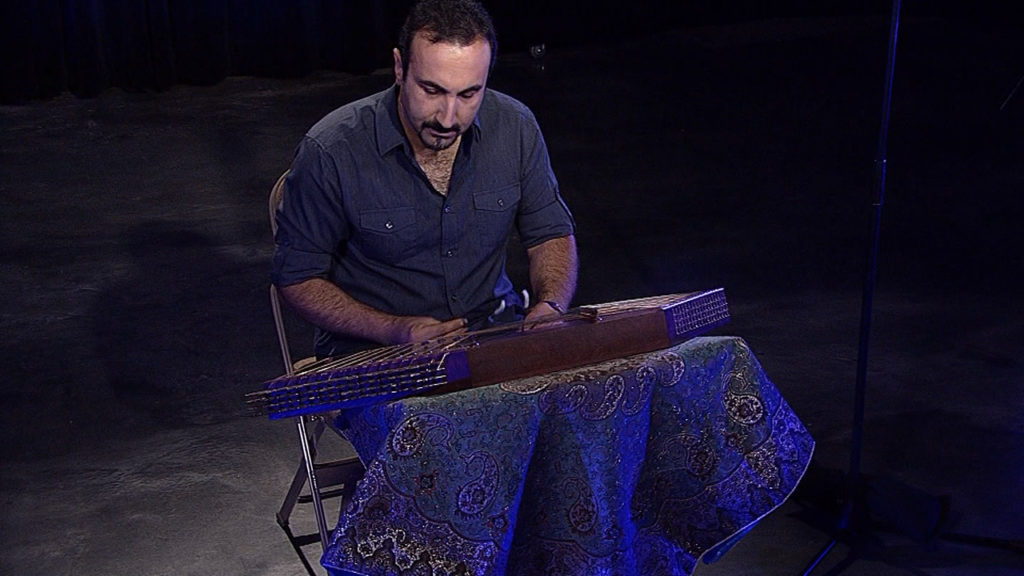Sefati, Sourena

Heir to a Persian musical heritage that stretches back millennia, Iranian santour virtuoso Sourena Sefati carries that tradition into the modern era with stunning original compositions that reveal the extraordinary breadth of expression concealed in this ancient instrument’s small wooden frame.
Born in Ramsar, Iran, Sefati fell under the sway of the santour at an early age and dedicated his life to mastering this trapezoidal box’s 72 metal strings. The grandfather of China’s yangqin, Eastern Europe’s cimbalon, and the United States’ hammered dulcimer, the santour is played with delicate felt-tipped mallets, or mezrabs. Its structure has changed little since its first representation in inscriptions in Susa, Iran, dating back to 699 B.C.
Sefati earned a bachelor’s degree in music in 2002 from the University of Tehran and went on to achieve a master’s in Iranian music performance in 2009 from Art University in Tehran, where he won the award for Best Composer of Iranian Music.
In his native country, Sefati launched a successful career as a performer, a recording artist with appearances on more than 50 albums, and an in-demand composer with numerous commissions. He’s appeared in concerts in Africa, Asia, and Europe, both as a member of prestigious ensembles and as a soloist. He performed as a featured soloist with the Iran Broadcasting Symphony Orchestra (2009 to 2014), the Iranian Chamber Orchestra (2009), and Mehrnavazan National Orchestra (2011). In 2016, his album Az Roozegare Rang Amiz(From Deceitful Ages) won him the award for Best Composer of Iran.
Sefati also dedicated himself to teaching at Art University and Elmi-Karbordi University in Tehran from 2008 to 2014. In 2014, he published Dorrab—One Hundred Seventeen Etudes for Santour, the first work of its kind for the instrument, offering a structured approach to santour technique.
In 2014, Sefati moved to the United States. The move presented an opportunity to spread awareness of his beloved motherland’s musical heritage and his own modern classical compositions, which are marked by lyricism, rhythmic complexity, and fast tempi requiring highly technical playing.
In 2015, Sefati started working with Rahim AlHaj, the Iraqi oud master who settled in Albuquerque. In 2016, they first performed together at the Kennedy Center in Washington, DC, and Sefati continues to tour the world as a member of the Rahim AlHaj Trio. They released the Album “One Sky” in March 2018 on Smithsonian Folkways.
In 2017, Sefati organized the Alborz Trio with Deborah Ungar (clarinet) and Gregory Gutin (percussion), performing Sefati’s original works and traditional Persian compositions in regional concerts. He also began arranging his compositions for string quartet, santour, and percussion, with plans for performances in 2018 and beyond.
Sefati released a recording of his own compositions, for santour and percussion, in the coming year. Titled The Sound of Peace, the project reflects his hope for understanding and tolerance among the world’s many vibrant cultures.
In 2018, Sefati established NuAeen ensemble with Mojgan Shajarian, Persian singer, Pejman Hadadi, Percussionist, and Ali Pajooheshgar, Oud player, and started performing concerts in the United States and Canada. He published his album, Arghavan, with Mojgan Shajarian in 2019.
